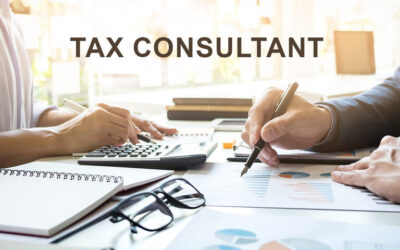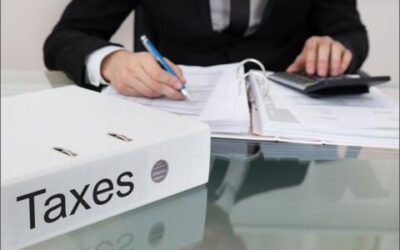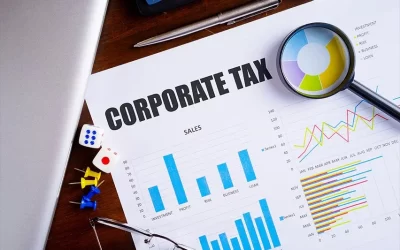A business resident in the UAE that makes taxable supplies within the UAE is obliged to register for Value Added Tax (“VAT”). If the total value of its taxable supplies and imports exceeded the mandatory registration threshold of AED 375,000 over the previous 12 months, or the business expects that the total value of its taxable supplies and imports will exceed the mandatory VAT registration in UAE threshold in the next 30 days. A business also has the option to voluntarily register for VAT if the total value of its taxable supplies and imports or taxable expenses in the previous 12 months exceeded the voluntary registration threshold of AED 187,500, or the business expects that the total value of its taxable supplies and imports or taxable expenses will exceed the voluntary registration threshold in the next 30 days.
VAT registration in UAE
VAT registration in UAE is mandatory for businesses that meet certain criteria. Here’s a breakdown of the key points:
- Mandatory Registration: If your business’s taxable supplies and imports exceed AED 375,000 per annum, you must register for VAT. Registration is required within 30 days of exceeding the threshold.
- Voluntary Registration: Businesses with taxable supplies and imports exceeding AED 187,500 per annum can voluntarily register for VAT. Voluntary registration can offer certain advantages, such as input tax recovery on business expenses.
Transactions subject to VAT are divided into 3 categories
- All Supplies to VAT at 5%
- All Supplies are subject to VAT at zero rate.
- Import of goods and services.
Which supplies are subject to %5 VAT?
All supplies that fall within the scope of UAE. VAT and are not subject to the zero rates. In many countries, the specific supplies subject to a 5% Value Added Tax (VAT) can vary. Generally, essential goods and services such as basic groceries, medical supplies, and certain educational materials might fall under the 5% VAT rate. However, it’s important to note that the precise list of items can differ based on local regulations and policies. We recommended to consult the official tax authority of your country for the most accurate and up-to-date information on VAT rates and applicable supplies.
Which supplies are subject to VAT at zero rates?
The following supplies are subject to VAT at the zero rates as an exception. Provide the certain conditions for each (as mentioned in the legislation) are met:
- Export of goods and services.
- International transport of goods and passengers, and transport-related services, such as trains, sea vessels, and aircraft, and goods and services related to such means of transport.
- Certain precious investment metals.
- Supply of buildings specifically designed for charitable institutions (lease or sale) or buildings that were converted from non-residential to residential units (lease or sale).
- Crude oil and natural gas.
- Certain educational services.
- Necessary and preventive healthcare services and related goods and services.
What are the supplies that are exempt from VAT?
The following supplies are exempt from VAT registration in UAE. Provide the certain conditions for each (as mentioned in the legislation) are met:
- Certain Financial Services.
- Supply of residential units (lease or sale) if such supply is not subject to zero rates.
- Bare land.
- Local Passenger transport.
What records should you keep and for how long?
As a prerequisite, every person who conducts any business, whether registered for tax or not, should hold the following documentation and records, as mentioned in the legislation. These documents should include accounting records with entries on payments, receipts, purchases, sales, profits, and expenses, including:
- Balance sheets and income statements (profit and loss accounts).
- Records of wages and salaries.
- Fixed asset records.
- Inventory records and statements (including quantities and values) held at the end of any relevant Tax Period and all records of stock counts related – to inventory statements.
- Any records as specified in tax law and other legislation.
In addition to the above,VAT registration in UAE must retain the following documentation:
- Records of all supplies and imports of goods and services.
- All tax invoices, tax credit notes, and alternative documents received and issued.
- Records of goods and services that have been dispose of or used for matters not relate to the business. Detailing the VAT paid on those goods and services.
- Records of goods and services purchase for which input tax has not been deducte.
- Records of exported goods and services.
VAT registration in UAE business also needs to maintain a VAT record or account which shows:
- The output tax due on taxable supplies is accounted for via the reverse charge mechanism.
- The Accrued output tax after corrections of any errors or adjustments.
- Input Tax recoverable on supplies or imports.
- Input tax is recoverable after the correction of any errors or adjustments.
The record must be kept for a minimum of 5 years after the end of the tax period. Where the taxable person owns real estate. The records relating to real estate must be kept for a period of 15 years. In accordance with the requirements of tax legislation.
MASAR The Best Firm
MASAR can greatly assist with VAT services in UAE by offering comprehensive expertise in navigating the complexities of VAT regulations and compliance. Their dedicated team of professionals can provide accurate advice on VAT rates, classifications, and reporting requirements, ensuring your business remains in compliance with the ever-changing tax landscape. From proper VAT registration in UAE to precise record-keeping, MASAR can streamline your VAT processes, minimize risks of errors or penalties, and optimize your VAT-related financial strategies. With MASAR’s specialized support, you can focus on your core operations while having confidence in your VAT management.
Conclusion
VAT registration in UAE is essential for businesses engaging in taxable transactions. These transactions fall into three categories: those subject to 5% VAT, those subject to zero-rated VAT, and those exempt from VAT. Maintaining accurate records for these transactions, including invoices, receipts, and relevant documentation, is crucial. VAT-registered businesses in the UAE must also retain specific documentation as required. MASAR offers invaluable assistance by expertly navigating VAT complexities, ensuring proper registration, guiding accurate record-keeping, and providing comprehensive support for VAT-related compliance. With MASAR’s proficiency, businesses can confidently manage their VAT obligations, optimize financial strategies, and focus on core operations.
You can contact by:









0 Comments